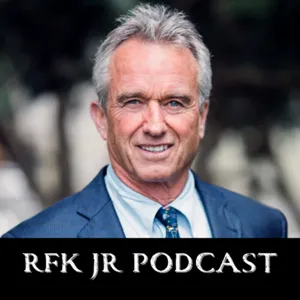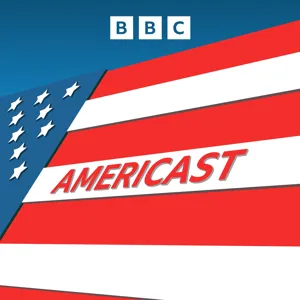Podcast Summary
Acknowledging the drug crisis is crucial for effective policy change: Recognizing the role of government in addressing drug issues is essential for reducing overdoses and social issues, as seen in Amsterdam's successful approach.
Acknowledging the existence of a drug crisis and recognizing the need for government intervention is crucial for effective policy change. Renee Zegarias, Amsterdam's drug policy leader, shared her insights from Amsterdam's experience in the 1980s, where they faced similar issues to modern American cities, such as San Francisco. Back then, Amsterdam had over 3,000 annual overdoses, open drug markets, and significant social issues. Today, Amsterdam has significantly reduced overdoses to only 300 per year, and Renee believes that American cities like San Francisco could learn from their approach. The first step is acknowledging the crisis and recognizing the role of the government in addressing it, rather than trying to solve it alone. This acknowledgement paves the way for the development and implementation of effective policies.
Collaborative efforts between multiple parties for addressing homelessness and drug addiction: Effective homelessness and drug addiction solutions involve a team approach with health services, police, local government, housing corporations, and social workers, ensuring personalized recovery plans and efficient resource allocation.
Addressing the complex issue of homelessness and drug addiction requires collaboration between various parties, including health services, police, local government, housing corporations, and social workers. This team approach ensures that each individual receives a personalized plan for recovery, which may include rehab, long-term treatment, or housing. Social workers play a crucial role in coordinating efforts between law enforcement and other services, ensuring that resources are allocated effectively and that individuals receive the help they need. This methodology, which emphasizes a carrot-and-stick approach with "tough love," can lead to positive changes for those willing to cooperate and make steps towards recovery. However, it's essential to acknowledge that this is just a starting point, and long-term, affordable or free treatment options are necessary for sustained success.
Amsterdam's Balanced Approach to Drug Addiction: Amsterdam provides personalized treatment and safe drug use for addicts, while enforcing rules to maintain order and prevent neighborhood disturbance.
Amsterdam's approach to drug addiction involves a balance of treatment and enforcement. They provide heroin to some addicts as part of their treatment, but this is a last resort. The police play a crucial role in enforcing rules and helping those who cooperate with the system. Addicts are evaluated by doctors and psychiatrists to determine their needs and create appropriate treatment plans. Shelters are provided where addicts can use drugs safely and receive other support. The approach recognizes that each addict is unique and requires different solutions. However, housing an addict in a house may not be feasible for everyone due to the potential for neighborhood disturbance. The key is to find the right balance between treatment and enforcement for each individual.
Addressing the complex issue of mentally ill individuals on the streets: Requires a multi-faceted approach involving law enforcement, community, and individual needs. Legal challenges exist, but action is needed to help individuals and improve neighborhoods.
Addressing the issue of mentally ill individuals on the streets is a complex problem that requires a multi-faceted approach. This includes not only law enforcement but also community involvement and various levels of intervention based on the individual's needs. However, there are legal and constitutional challenges in some areas that make this difficult. For instance, in some Western states, it is not allowed to remove these individuals from the streets unwillingly. Despite these challenges, it is important to take action to help these individuals and improve neighborhoods, rather than just talking about it. Some cities, like Miami and Denver, are making progress, while others, like San Francisco, are struggling. Ultimately, the success of these efforts depends on political will and community engagement. The speaker emphasized that there is no one-size-fits-all solution, and that it's important to learn from each other's mistakes and successes.
Understanding the unique context of each city to address the opioid crisis: Effective opioid crisis strategies require adapting to each city's societal perception, laws, and cultural norms
Addressing the opioid crisis in different cities requires a unique approach due to various factors such as societal perception, laws, and cultural norms. The speaker's experience in Amsterdam shows that the crisis was less severe 30 years ago due to societal stigma around opioid use. In contrast, the situation in the US is more complex, with longer prescription durations and fewer regulations. The speaker also mentioned that some drugs, like cocaine, are perceived as "winner drugs" in certain cultures, while others, like mushrooms, are not appealing due to their unpleasant side effects. The speaker's efforts to address the opioid crisis in different cities took several years to show results, and public awareness was limited. Overall, the discussion highlights the importance of understanding the specific context of each city and adapting strategies accordingly to effectively address the opioid crisis.
Dutch approach to heroin addiction: Controlled heroin prescription in Netherlands leads to decrease in addiction, criminal activity and improved patient outcomes.
The legalization and regulation of certain drugs, such as heroin in the Netherlands, can lead to healthier outcomes for addicts. The Dutch approach involved prescribing heroin to a select group of patients in controlled environments, which led to a decrease in addiction and criminal activity. The use of methadone as an alternative helped stabilize patients and reduce the frequency of heroin use. Contrary to popular belief, the dosage of heroin does not necessarily increase over time, and the use of methadone allows addicts to make rational decisions and avoid engaging in risky criminal behavior when sick. This approach has led to a significant decrease in the number of heroin addicts in Amsterdam, with some addicts transitioning from heavy use to minimal use or even abstinence.
Dutch approach to drug use focuses on harm reduction: The Netherlands' unique approach to drug use, focusing on harm reduction, has led to decreased drug-related health issues and crime.
The Netherlands, despite being in the midst of drug distribution, particularly of cocaine, does not have a significant health problem related to drugs. Instead, they face a larger issue with crime. The Dutch government's approach to addressing drug use is unique, with a focus on harm reduction through the provision of methadone and heroin to addicts. This approach has led to a decrease in drug-related health issues and crime. The Netherlands' small size and central location in Europe contribute to its role as a drug distribution hub. However, the country's focus on addressing the health consequences of drug use sets an example for other European countries to follow. The awareness and acceptance of the problem of drug addiction and the implementation of harm reduction strategies are crucial first steps in addressing the issue. While Europe, in general, does not have a significant problem with opiates and drugs, there is a larger issue with alcohol-related health problems. Renee's insights provide a valuable template for other regions to consider in their approach to drug policy.





